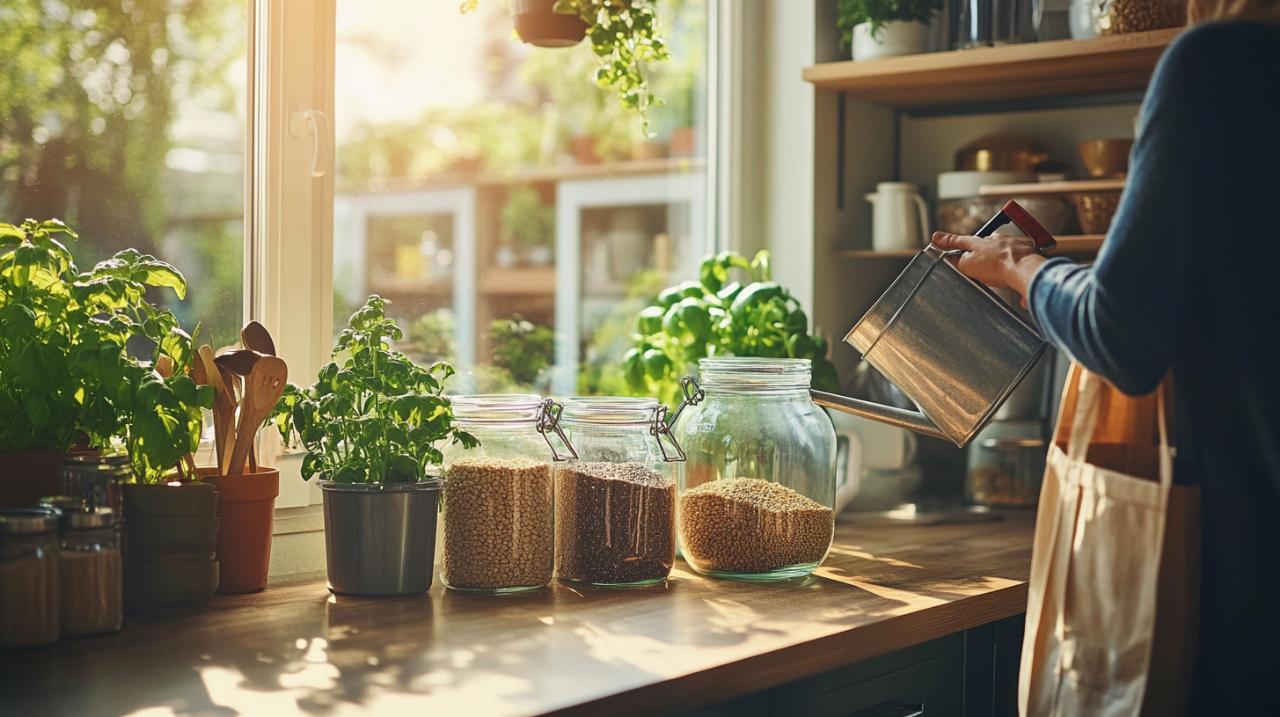Taking steps towards a more environmentally conscious way of life doesn’t require a complete overhaul of everything you do. Small, thoughtful adjustments can make a real difference, and integrating sustainable living practices into your everyday routine is easier than you might think. It’s about making choices that reduce your impact on the planet, from the moment you wake up to the time you settle down for the evening. Whether it’s being more mindful about what you buy, how you travel, or what you eat, each decision contributes to a larger movement towards environmental protection and tackling climate change. The good news is that many of these changes not only help the planet but can also save you money and improve your overall well-being.
Rethinking Your Morning Rituals for a Greener Start
The way you begin your day sets the tone for everything that follows, and your morning routine offers plenty of opportunities to embrace more sustainable habits. From the products you use on your skin to the amount of water that flows down the drain, there are simple swaps and adjustments that can significantly reduce your carbon footprint without adding hassle to your schedule. It’s all about being aware of the choices you make and opting for alternatives that are kinder to the environment. Many people are already trying to live more sustainably, with studies showing that a significant portion of consumers are actively seeking greener options in their daily lives.
Switching to eco-friendly personal care products
One of the easiest changes you can make is to replace conventional personal care items with eco-friendly alternatives. Traditional products often contain chemicals that contribute to water pollution and can harm aquatic life once they’re washed away. Each year, vast quantities of chemicals from cleaning and personal care products end up in wastewater systems, affecting ecosystems and wildlife. By choosing organic products and biodegradable options, you’re not only reducing your exposure to potentially harmful substances but also protecting the environment. Look for brands that use natural ingredients and avoid microplastics, which have been found in staggering amounts on the ocean floor. Switching to solid shampoo bars, refillable containers, and cruelty-free cosmetics are all practical steps that align with a commitment to environmental well-being. These choices also often come in minimal or recyclable packaging, which helps tackle the problem of plastic reduction and ocean pollution.
Reducing water waste during your morning routine
Water conservation is another crucial aspect of a sustainable morning. With population growth and the increasing frequency of droughts, being mindful of water usage has never been more important. Simple habits like turning off the tap while brushing your teeth, taking shorter showers, and installing water-saving devices can make a noticeable difference. Fixing leaks promptly is also essential, as even a small drip can waste litres of water over time. If you’re considering more substantial home improvements, investing in efficient appliances and exploring options like modern condensing boilers or heat pumps can further enhance your home’s energy efficiency and reduce your overall consumption. These measures not only contribute to water conservation but also help lower your energy bills, making them a win for both your wallet and the planet.
Making mindful choices in your kitchen
The kitchen is often the heart of the home, and it’s also a space where many of our daily decisions have a direct impact on the environment. From the food we eat to the way we store and dispose of it, there are numerous ways to make your cooking and eating habits more sustainable. By being conscious of where your food comes from, how it’s produced, and how much of it goes to waste, you can significantly cut down on greenhouse gas emissions and support a healthier planet. The choices you make here are closely linked to your carbon footprint, particularly when it comes to diet, which accounts for a substantial portion of individual environmental impact.
Embracing plant-based meals and reducing food waste
One of the most effective ways to reduce your environmental impact is to eat less meat and incorporate more plant-based meals into your diet. Animal-based foods are responsible for a large share of diet-related carbon emissions, and cutting back on meat can lead to meaningful reductions in greenhouse gases. You don’t have to go completely vegetarian or vegan overnight, but even small changes like having a few meat-free days each week can add up. A plant-based diet not only helps tackle climate change but also supports wildlife protection, as livestock farming is a major driver of habitat destruction. Additionally, being mindful of food waste is crucial. Huge amounts of food are thrown away each year, contributing to unnecessary carbon emissions and wasting valuable resources. Planning your meals, storing food properly, and using leftovers creatively can all help limit food waste and make your kitchen more sustainable.

Opting for Reusable Containers and Shopping Locally
Another key aspect of sustainable living in the kitchen is reducing your reliance on single-use plastics and disposable packaging. Plastic pollution is a significant problem, with vast quantities ending up in the ocean and harming marine life. By switching to reusable containers, bags, and wraps, you can dramatically cut down on the amount of plastic you use. When it comes to shopping, choosing local produce is a great way to reduce food miles and support your community. The average food item travels a considerable distance before it reaches your plate, contributing to carbon emissions from transportation. Shopping at farmers’ markets or local stores not only reduces this impact but also ensures you’re getting fresher, seasonal produce. Supporting businesses committed to sustainability and opting for products with minimal packaging are additional steps that align with conscious shopping and help drive demand for more environmentally responsible practices.






